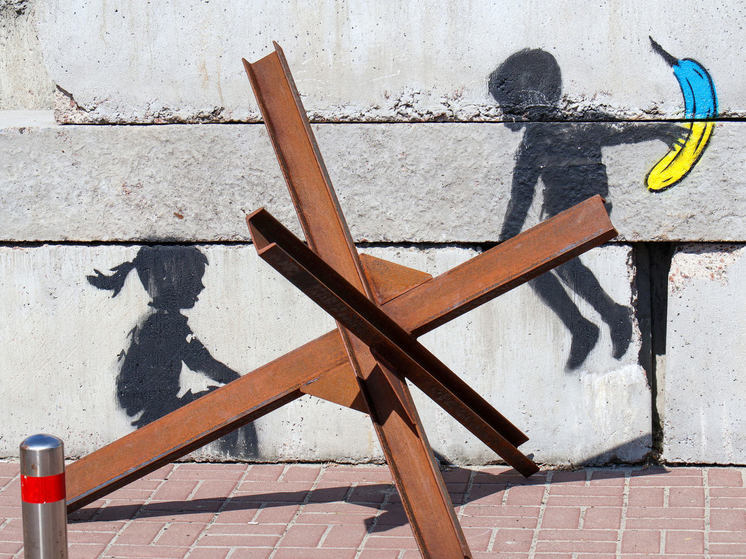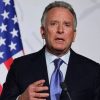The meaning of what is happening now is a fight to restore the balance of power and interests
There is political marketing and there is what actually happens. Sometimes these two spheres completely (rarely) or partially (more often) intersect, and sometimes they seem to live in different worlds. The war to end all wars (“the war to end all wars”) — this is how, with the light hand of the famous writer Herbert Wells, the First World War was “sold” to the British public in those terrible years. The reality turned out to be completely different. The “Great War” (another name for the First World War) turned out to be the war to start all wars (“the war that started all wars”). By contrast, after the end of the Second World War, Europe, with the exception of isolated episodes, plunged into a state of peace for almost seven decades. What is the reason for this difference? In a concept that is fundamental to the current Ukrainian crisis: the balance of forces and interests.

Shortly after the collapse of the political regime in the GDR in 1989, British Prime Minister Margaret Thatcher told Mikhail Gorbachev during a confidential conversation that the unification of Germany “would lead to a change in post-war borders, and we cannot allow this because such a course of events would undermine the stability of the entire international situation and pose a threat to our security.» German reunification is by no means the root cause of the current Ukrainian crisis. But it became one of the elements in the chain of events that, several decades later, actually led to “undermining the stability of the entire international situation.”
The world that existed during the first Cold War was not a particularly pleasant place. But he was stable in his own way. In the West they knew: this is our zone of influence, and this is their zone of influence. We, of course, strive to defeat them, and they strive to defeat us. But any frontal conflict will destroy both us and them. That's why they don't bother us, and we don't bother them. August 1968, long-time USSR Ambassador to Washington Anatoly Dobrynin informs US leader Lyndon Johnson about the impending entry of Soviet troops into Czechoslovakia: “President Johnson listened carefully to the message I made, but to my surprise did not react to such news.”
Stability (at least in the short and medium term), as it is. An international security system based on a balance of forces and interests that works. Was it poor stability and a bad system? I wouldn't dare to say the opposite. But compare this with the situation that arose after the official end of the First World War. Excerpts from Robert Herwarth, professor of modern history at University College Dublin, “The Vanquished: Why the First World War Could Never End, 1917-1923”: “The Great War did not give way to a period of peace… For those who lived in Riga, Kiev , Smyrna and many other places in Eastern, Central and Southeastern Europe in 1919, there was no peace — only continued violence. “The world war formally ended with an armistice agreement,” noted the Russian philosopher and polymath Pyotr Struve, “But in fact, all that we have experienced and continue to experience, starting from that moment, is the continuation and transformation of the world war.”
Having talked in detail about conflicts and wars in such different countries and in such different territories as Turkey, Greece, Hungary, Poland, Finland, Germany, Robert Gerwarth notes that the term “interwar years” that is familiar to us (that is, the period between the end of the First World War and the beginning of the Second World War) only makes real sense if we are talking about the two European powers that were the main victors in the First World War — Great Britain and France. Yes, and this is also a convention. Having barely managed to move away from the First World War, Great Britain was immediately faced with a civil war in Ireland, which ultimately led to the secession of the southern part of this island from the control of London. And in 1922, then-Prime Minister David Lloyd George — the politician who led Britain to victory in the Great War — was unceremoniously removed from office. Why? Because he tried to drag the country into a new bloody military conflict — this time with Turkey.
Yes, yes, I understand that our excursion into the history of a hundred years ago has been somewhat delayed. For this reason, I will limit myself to the statement: following the results of the First World War, a stable balance of forces and interests was not achieved in Europe. Such a balance appeared only after the Second World War. “Yalta” (in the sense of the Yalta Conference of 1945) is almost a dirty term for many Western political scientists. But the balance of forces and interests, the agreements on which were reached on the Crimean shores, led our continent through the Cold War. The dissolution of the socialist camp and the collapse of the USSR marked the “death” of the Yalta system. At first, no one was worried about this — even in Moscow. We were under the illusion that along with the Yalta system, the “old policy”, based on such old-fashioned concepts as the “balance of power,” died. It would seem that now everything will be within the framework of idealism and “new thinking.”
But in fact, this “new thinking” turned out to be only a thinly veiled old one. It turned out that the balance of forces and interests is not an invention of communist (or imperialist) propaganda, but something absolutely necessary. It also became clear that the balance of power that the West began to build, first slowly and then more and more rapidly after 1991, was based on a progressive increase in pressure on Moscow. Russia had a choice: either come to terms with it or try to build its own counter-balance, which was done on February 24, 2022. I apologize for this repetition of well-known truths. But, if we want to understand what lies ahead for Europe and Russia, then this repetition is absolutely necessary.
If we think in geopolitical categories, then everything that is happening now in Ukraine concerns Ukraine itself only to a very indirect extent. Having tried to drag its country into NATO, official Kyiv made it an arena for showdowns between the great powers. And these showdowns will end with the establishment of a new balance of power and interests. It simply cannot be any other way. Of course, depending on the further development of the situation, this new balance may be more advantageous for one side of the conflict and less advantageous for the other. But what will be beneficial for absolutely everyone is a situation in which the existing balance will be stable and sustainable. In this case, there is a chance that peace will return to Europe for many years to come. And it doesn’t matter that this world will be cold, based not on friendly and warm feelings, but on a sober understanding: any attempt to attack your opponent will backfire on you.
One of the bitter lessons of the 20th century is that any attempt to create a utopia, a paradise on earth, certainly ends in a lot of blood and the creation of something that suspiciously resembles an earthly hell. We need to moderate our ambitions and rely primarily on foreign policy realism. And this foreign policy realism says: creating a stable balance of forces and interests one, creating a stable balance of forces and interests two, creating a stable balance of forces and interests three. This may not be a very romantic way to bring peace back to Ukraine and Europe. But this is the only way that works.


























































Свежие комментарии